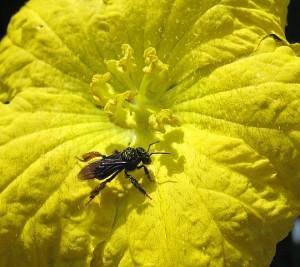We always see the sign in the produce section of our grocery stores: “organic”. Is it truly healthier than conventional produce? In recent years, the push to produce naturally grown foods has increased to boost the health of society as a whole. The term “organic” is thrown around to define foods grown with natural rather than synthetic pesticides and fertilizers but that doesn’t necessarily mean it’s a better alternative.
It is true that organic farms have 97% less synthetic pesticides than conventional farms, but that 3% is still there. This amount is brought to organic farms via wind transport and river runoff. Although synthetic pesticides are more spoken about, they aren’t the only potentially harmful compounds in our fruits and vegetables. Naturally, plants produce pesticides used to protect them from predators. These pesticides are found to be carcinogenic in rats and may be harmful to humans. Synthetic pesticides may actually reduce the production of the naturally occurring plant pesticides which leads to conventionally grown produce having lower levels of it than organic produce. Natural pesticides are found 10,000 times more than synthetic pesticides in both organic and inorganic foods. Moreover, the use of fertilizers in cultivation is essential in plant growth. Naturally occurring phosphate rock is used as a fertilizer in organic farming rather than synthetic fertilizers. The organic fertilizers actually contain more Cadmium, a known carcinogen, than synthetic fertilizers.
With all this research into how many synthetic vs organic compounds are used in the production of our food, it seems like either way, we re ingesting harmful chemicals every day. Because the risks associated with synthetic pesticides have been more studied than organic pesticides, we are swayed into believing that organic foods are completely healthy. Without knowing the risks attached with organic pesticides and fertilizers, society does not know the full extent of the benefits and drawbacks of consuming organic foods. So before paying the extra couple of dollars for the foods with the organic label, it’s really worth your time to step back and think about what “organic” really means.
Author: Parvin Pabla


